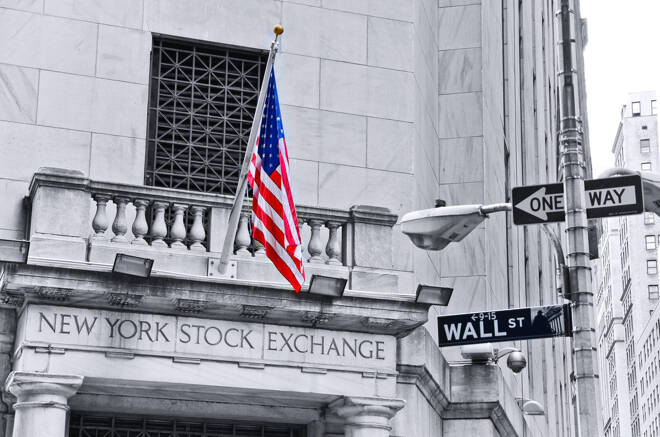Advertisement
Advertisement
Stocks Mixed After Inflation Exceeds Analyst Expectations
By:
Problems of Johnson & Johnson's coronavirus vaccine and disappointing economic sentiment reports from Europe may serve as bearish catalysts today.
Inflation Rate Increased By 2.6% In March
The U.S. has just released Inflation Rate and Core Inflation Rate reports. The reports indicated that Inflation Rate increased by 2.6% year-over-year in March compared to analyst consensus which called for growth of 2.5%. Core Inflation Rate increased by 1.6% year-over-year compared to analyst consensus of 1.5%.
Inflation is moving higher on a year-over-year basis as prices were weak during the acute phase of the coronavirus crisis a year ago. Inflation looks more calm on a month-over-month basis although it also exceeded analyst expectations. Inflation Rate grew by 0.6% month-over-month in March compared to analyst consensus of 0.5%, while Core Inflation Rate increased by 0.3%.
S&P 500 futures are swinging between gains and losses in premarket trading after the release of inflation reports. Meanwhile, Treasury yields failed to gain additional upside momentum after reports indicated that inflation exceeded analyst expectations.
U.S. Recommends Pausing The Use Of Johnson & Johnson’s COVID-19 Vaccine
Shares of Johnson & Johnson found themselves under pressure in premarket trading after U.S. health agencies called for a temporary pause of the use of the company’s coronavirus vaccine.
The problems of Johnson & Johnson are similar to AstraZeneca‘s problems. In rare cases, recipients of the vaccine developed blood clots.
While these cases are extremely rare, the negative headlines may decrease people’s confidence in vaccination in general, so Johnson & Johnson’s problems may serve as a bearish catalyst for the market.
Euro Area Economic Sentiment Declines
Today, EU reported that Euro Area ZEW Economic Sentiment Index decreased from 74 in March to 66.3 in April. Analysts expected that it would grow to 77. In Germany, Economic Sentiment Index declined from 76.6 to 70.7 compared to analyst consensus of 79.
The reports indicated that European businesses have started to feel the pressure from the third wave of the virus. At the same time, it should be noted that ZEW Economic Sentiment Index remains at high levels.
For a look at all of today’s economic events, check out our economic calendar.
About the Author
Vladimir Zernovauthor
Vladimir is an independent trader, with over 18 years of experience in the financial markets. His expertise spans a wide range of instruments like stocks, futures, forex, indices, and commodities, forecasting both long-term and short-term market movements.
Advertisement
